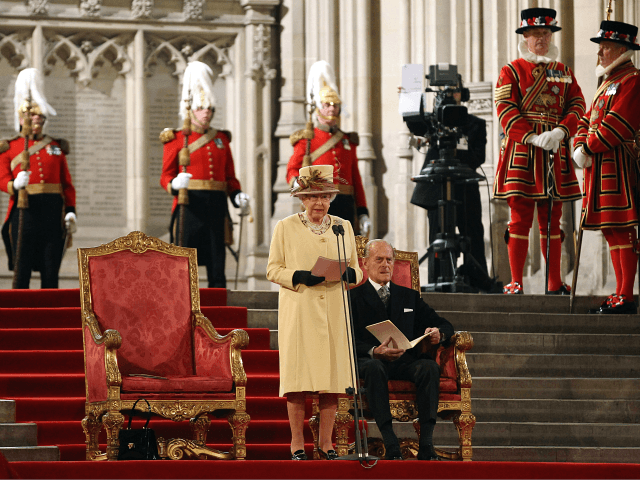Leading Tory Brexiteer Jacob Rees-Mogg has backed calls for the Queen to prorogue (suspend) the parliamentary session if MPs loyal to the EU can orchestrate votes blocking a clean Brexit.
The Sovereign’s power to outright dissolve Parliament — in practice wielded by the Government, as the monarch acts “on the advice of her ministers” in the modern era — was removed by the Fixed Term Parliament Act in 2011, but she retains the right to prorogue, i.e. temporarily suspend, a parliamentary session.
Prorogation is typically used to initiate recesses and so on, but is now viewed as the “nuclear option” to stop Remainer MPs set on derailing Britain’s scheduled departure from the European Union on March 29th, in defiance of the people’s vote to leave the bloc and manifesto pledges to respect the result which more than 80 percent of MPs campaigned on in the 2017 election.
“If the House of Commons undermines our basic constitutional conventions then the executive is entitled to use other vestigial constitutional means to stop it,” Mr Rees-Mogg warned.
“By which I basically mean prorogation. And prorogation normally lasts for three days but any law that is in the process before prorogation falls.
“And I think that would be the Government’s answer, that is the Government’s backstop.”
The European Research Group (ERG) chairman added, moreover, that if Theresa May declined to make use of the Sovereign’s prerogative power to prorogue, she would be “allowing the opposition to Brexit to win”, and by implication complicit.
Mrs May’s public position is that No Deal cannot be taken off the table, and that she will not endorse re-running the 2016 referendum, but prominent Cabinet ministers such as Chancellor of the Exchequer Philip “Remainer Phil” Hammond and Home Secretary Amber Rudd — sister to Roland Rudd, who chairs the campaign for a second referendum — are openly denouncing No Deal and lobbying for a free vote on blocking it.
Calls for prorogation have been gathering steam since early January, with historian Andrew Roberts saying that a “strong” prime minister would suspend the parliamentary session “as it became clear that Parliment was about to flout the will of the people.”
“She would be well within her constitutional rights, and protecting democracy,” he added, referencing the fact that if MPs blocked Brexit they would essentially be acting without a mandate.
While Remain-leaning journalists and politicians have suggested that such a drastic course of action would be “despotic” or amount to a “coup”, proponents believe it would be a legitimate constitutional check on a rogue legislature, roughly analogous to a U.S. President using his veto power.
More directly analogous to a presidential veto would be the Government advising the Queen to withhold the Royal Assent from Brexit-wrecking Bills — and some Government sources have suggested this option is on the table, given the way the Remain-backing Speaker of the House of Commons has broken with centuries of precedent to assist anti-Brexiteer MPs with their parliamentary manoeuvres.
Exercising a veto of this sort is much more difficult in the British system than in the American system, however, as Britain’s executive emerges from its legislature — and is therefore both extremely unlikely to be faced with a Bill it opposes, and at risk of being swiftly deposed if it blocked one which arose.

COMMENTS
Please let us know if you're having issues with commenting.